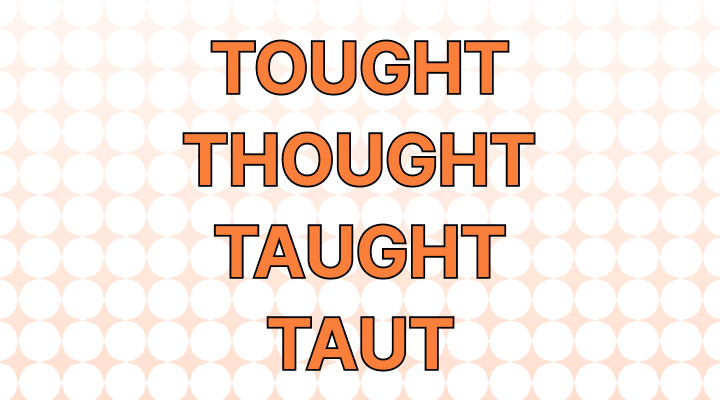"Tought" is a misspelling of one of the following words: "thought," "taught," or "taut."
"Taut" is an adjective that means tight or stretched. For example, a tightrope walker might balance on a taut rope as opposed to a flimsy rope.
"Taught" is the past tense of "teach," which means to explain or give information to someone on how to do something. For example, a teacher might have taught you algebra, which means they showed and explained how to do algebra.
"Thought" as a noun means an idea or opinion produced in the mind or the process of thinking itself. For example, you could have a sudden thought of a brilliant idea, or you can be deep in thought, which is emphasizing the process or state of thinking. "Thought" as a verb is the past tense of "think," which means to use one's mind to form ideas and opinions. You could think about your favorite food or someone you miss.

Through the Google Books Ngram Viewer, we can see that thought, taught, and taut have a much higher use than than tought in Google’s database of published books in both American and British English since the year 1800.

Example sentences
The following are example sentences of "thought," "taught," and "taut" being used in sentences.
- I had a sudden thought about the solution to the problem.
- Her thoughts were filled with excitement about the upcoming trip.
- Deep in thought, he pondered the mysteries of the universe.
- She taught me how to ride a bike when I was young.
- The professor taught us advanced mathematics concepts.
- They taught their dog various tricks and commands
- The art instructor taught the students different painting techniques.
- The sailboat's taut sails caught the wind and propelled it forward.
- The athlete's muscles were taut as they prepared for the race.
- The drumhead was stretched taut to produce a crisp sound.
Want to sound like a native speaker?
Engram’s AI-powered grammar checker makes your English sound like a native speaker’s, suggesting natural English expressions on top of fixing grammar, spelling, punctuation, word order, and vocabulary.

Note that Engram is different from and not related to ngram in Google Books Ngram Viewer, although Engram and ngram have the same pronunciation. Engram is an AI-powered grammar checker and English proofreader, while ngram refers to a series of n adjacent letters in a language dataset.
Reference:





















